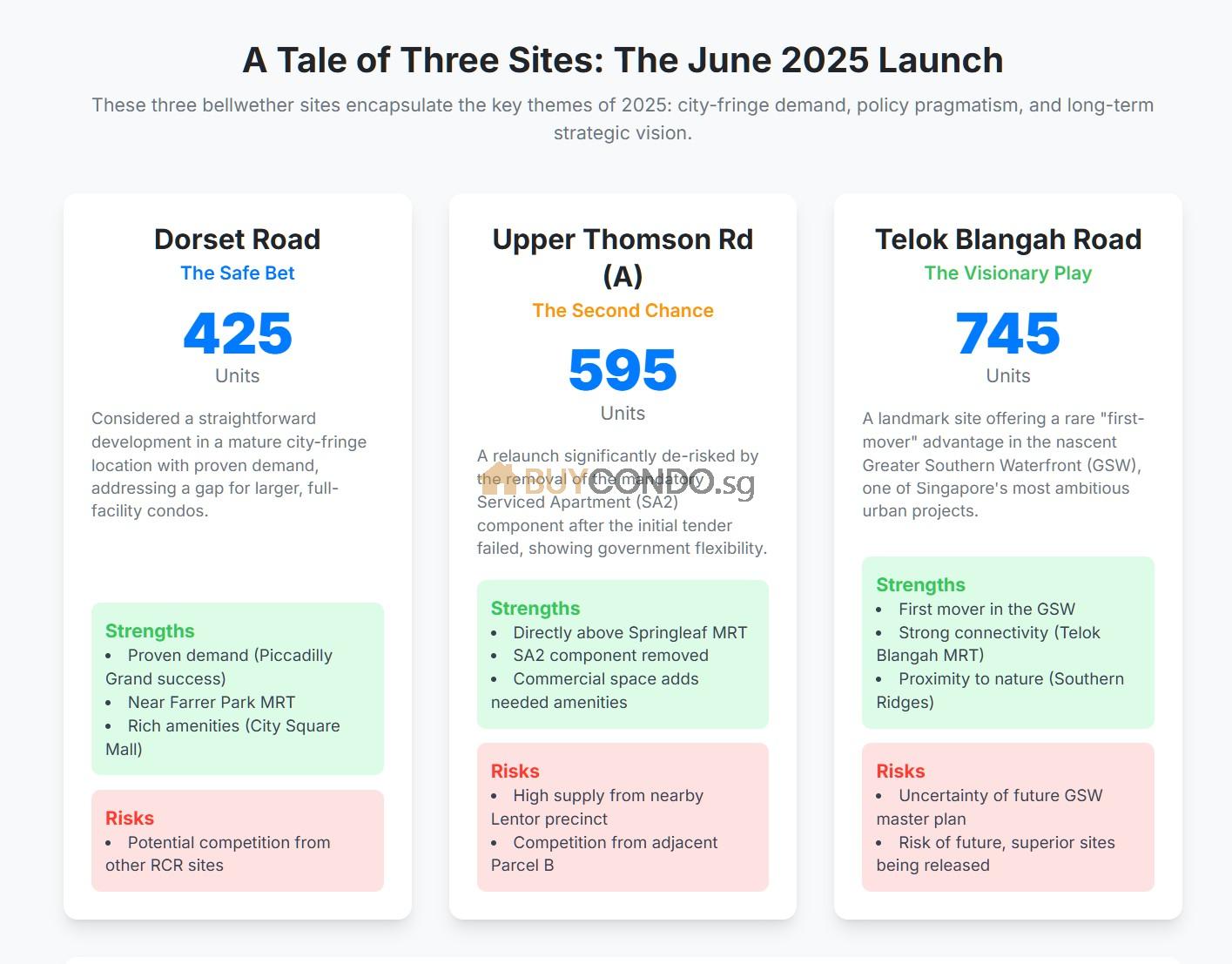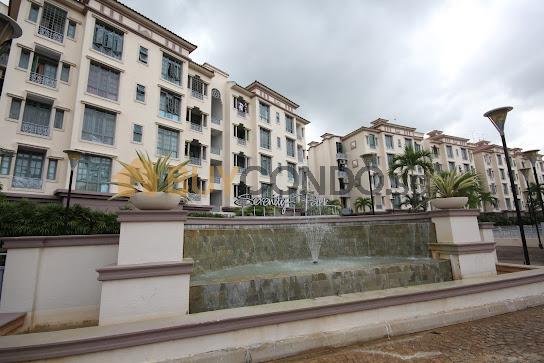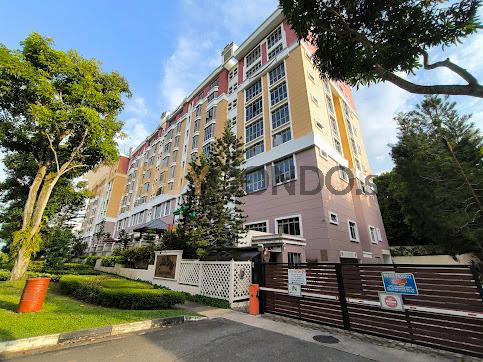Mini-Landlord in Singapore: A.k.a Co-living
In this article, we will delve into the rising trend of becoming a mini-landlord in Singapore, also known as co-living. We will explore the phenomenon of co-living and the opportunities it presents in the city-state.
Key Takeaways:
- Co-living is a growing trend in Singapore, offering opportunities for individuals or companies to become mini-landlords.
- Renting out rooms in a larger-sized condo is a popular option for mini-landlords.
- Living with family or relatives while renting out the additional rooms or dual key concept for mini-landlords.
- Utilities and cost of wear and tear expenses should be considered when budgeting as a mini-landlord.
- Effective communication and addressing rental challenges promptly are crucial for a successful co-living experience.
The Cost of Rent and Utilities
Rent and utility expenses are key considerations for mini-landlords in Singapore. The cost of rent can vary based on factors such as location, property type, and amenities. Some mini-landlords choose luxury condos in the central business district (CBD) area, which can come with higher rental costs. Others opt for co-living arrangements in shared rooms on the outskirts of the city, offering a more affordable alternative.
When calculating expenses, it is important to factor in utility costs as well. These include electricity, water, gas, and internet bills. Utility rates can fluctuate, so it’s essential to budget accordingly and account for potential variations in usage. Additionally, mini-landlords should consider other expenses such as air conditioning servicing and servicing fees for appliances.
Table:
| Property Type | Location | Average Monthly Rent |
|---|---|---|
| Condos with 1000sqft above | CBD/Outskirts | $4,000 – $7,000 |
| Co-living in Shared Rooms | Outskirts of the city | $1200 – $2,500 |
By considering the rental costs and utilities, mini-landlords can make informed decisions to manage their expenses effectively while providing comfortable living spaces for tenants.
Living with Family or Relatives
Living with family or relatives can be a cost-effective option for mini-landlords in Singapore. This arrangement allows for shared living expenses and the opportunity to save on rent. Additionally, living with loved ones can provide a sense of familiarity and support, creating a comforting home environment.
While living with family or relatives can be a cost-saving option, it is crucial to carefully consider the implications. Longer commute times and limited options for privacy and personal space may be among the challenges faced in such living situations. It is important to have open and honest communication with family members or relatives to establish boundaries and ensure a harmonious co-living experience.
| Pros | Cons |
|---|---|
| Cost-saving option | Longer commute times |
| Sense of home and support | Limited options for privacy |
| Opportunity for home-cooked meals | Dependent on availability of empty rooms |

In conclusion, living with family or relatives can be an attractive option for mini-landlords in Singapore looking to save on rent and create a sense of home. While it may come with certain challenges, effective communication and setting boundaries can help maintain a positive living environment. Consider the availability of empty rooms and the potential for longer commute times when exploring this cost-saving option.
Renting a Room in a Condo
For mini-landlords in Singapore, renting a room in a condo is a popular option that provides a range of benefits and considerations. Sharing a living space in a condo offers access to shared amenities such as swimming pools, gyms, and common areas, creating a luxurious and convenient lifestyle. However, it’s important to be aware of the potential challenges and take necessary precautions to ensure a harmonious living environment.
Living in a condo with shared spaces requires effective communication and mutual respect with fellow housemates. Establishing clear rules and routines can help maintain a comfortable and organized living arrangement. It’s crucial to discuss expectations regarding cleaning responsibilities, noise levels, and the use of common areas to avoid conflicts and promote a positive living experience.

Additionally, mini-landlords should consider the size of the living space when renting a room in a condo. Condos often offer smaller living areas compared to other housing options, necessitating efficient use of space and minimalistic lifestyles. However, this can also be an opportunity for individuals who prefer a more minimalist and clutter-free living environment.
Comparison of Condo Rental Options
| Advantages | Disadvantages | |
|---|---|---|
| Larger Condos | – Can Create up to 6 bedrooms. | – Upfront Cost – High Density sharing of toilet |
| Shared Rooms in Condos | – Split rental costs – Opportunities for social interaction – Greater flexibility in choosing locations |
– Potential conflicts with housemates – Shared responsibilities for utilities and cleanliness |
Considering the advantages and disadvantages of renting a room in a condo, mini-landlords in Singapore can make informed decisions based on their preferences and budget. Effective communication, respect for shared spaces, and careful consideration of the living arrangements are essential for a positive co-living experience in a condo.
Despite these considerations, renting a whole HDB unit can offer the freedom and flexibility to design and personalize the living space. Usually for HDBs, the rental is using signed by a single name and he/she will be sharing among their friends or relative.
Mini-landlords can enjoy the benefits of having their own home while also having the opportunity to cultivate a sense of community within the HDB estate. It is important for mini-landlords to weigh the costs and responsibilities against the desired level of privacy and independence to make an informed decision.
| Advantages of Renting a Whole HDB Unit | Disadvantages of Renting a Whole HDB Unit |
|---|---|
| More privacy and control over the living space | Higher rental costs than other co-living options |
| Ability to personalize and design the living space | Additional responsibilities for utilities, aircon servicing, internet, and cleaning fees |
| Potential to create a sense of community within the HDB estate |
The Cost of Food
When it comes to the cost of living as a mini-landlord in Singapore, food expenses play a significant role. Singapore offers a diverse culinary scene, catering to all tastes and budgets. One popular and budget-friendly option is visiting hawker centers, which are open-air food courts offering a wide variety of affordable dishes. These hawker centers are scattered throughout the city and offer a taste of Singapore’s multicultural cuisine. From local favorites like Hainanese chicken rice to flavorful Laksa, there is something for everyone at these bustling food hubs.
While hawker centers provide delicious and affordable meals, dining out at restaurants can significantly increase food expenses. Singapore is home to numerous world-class restaurants, offering a range of cuisines from Southeast Asian flavors to international delicacies. However, dining at these establishments can be expensive, especially in upscale areas like Marina Bay Sands or Orchard Road. It is important for mini-landlords to budget and plan their dining experiences according to their financial situation.
Table: Price Comparison of Dining Options
| Dining Option | Average Cost per Meal |
|---|---|
| Hawker Center | Around $4 to $6 |
| Mid-Range Restaurant | Average of $20 to $40 |
| Upscale Restaurant | Average of $50 and above |
Overall, mini-landlords in Singapore have the flexibility to choose between affordable hawker center meals and more extravagant dining experiences. By balancing these options and making conscious decisions, mini-landlords can effectively manage their food expenses and maintain a comfortable lifestyle within their budget.
Transportation Costs
When it comes to transportation in Singapore, mini-landlords have several options to consider. Public transport, including buses and the Mass Rapid Transit (MRT) system, is the most popular and cost-effective choice. The extensive network of buses and trains makes it easy to navigate the city-state. Public transport fares are affordable, and the use of contactless payment methods such as EZ-Link cards or mobile payment apps like GrabPay further simplifies the process.
Taxi services are also readily available in Singapore, offering convenience and comfort. However, taxis can be more expensive compared to public transport, especially during peak hours or when traveling longer distances. Ride-hailing services like Grab provide an alternative to traditional taxis, offering competitive prices and the convenience of booking a ride with just a few taps on a smartphone.
Car ownership in Singapore can be costly due to high taxes, road congestion charges, and limited parking spaces. Owning a car involves various expenses, including the purchase price, road tax, insurance, parking fees, and maintenance costs. Mini-landlords should carefully consider their transportation needs and budget before deciding to own a car in Singapore.
Public Transport vs. Taxi vs. Car Ownership: A Comparison
| Public Transport | Taxi Services | Car Ownership | |
|---|---|---|---|
| Cost | Affordable fares | Higher fares | High upfront and recurring costs |
| Convenience | Extensive network, easy access | Convenient door-to-door service | Personalized mobility |
| Flexibility | Fixed routes and schedules | Flexible pick-up and drop-off | Freedom to travel at any time |
| Environmental Impact | Low carbon footprint | Higher carbon footprint | Higher carbon footprint |
“While public transport offers affordability and convenience, taxis provide door-to-door service. Car ownership offers personalized mobility but comes with high costs. Consider your transportation needs and budget carefully before making a decision.” – Transport Expert
By considering the various transportation options available in Singapore, mini-landlords can make informed decisions that align with their lifestyle and financial goals. Whether opting for the cost-effective and efficient public transport system, the convenience of taxi services, or the personal freedom of car ownership, each choice comes with its own advantages and considerations. It is essential to weigh the costs, convenience, flexibility, and environmental impact to determine the most suitable mode of transportation in Singapore.
Real-Life Tenant Experiences
Renting a property and living with others can sometimes lead to challenging situations. Mini-landlords in Singapore may encounter difficult landlords or difficult housemates, which can make the co-living experience stressful. It is essential to navigate these renting challenges effectively to maintain a harmonious living environment.
One common issue that mini-landlords may face is dealing with difficult landlords. Some landlords may be slow in their responses, such as delaying repairs or failing to address concerns promptly. This can create frustration and inconvenience for the tenants. Effective communication is crucial in addressing these issues. Mini-landlords should document any problems or requests in writing and discuss them with the landlord to find a resolution.
“Living with difficult housemates is another challenge that mini-landlords may encounter. Differences in lifestyle, cleanliness habits, or personal preferences can lead to conflicts. It is important to establish clear house rules and communicate openly to avoid misunderstandings. If issues persist, involving the landlord or seeking mediation can help resolve conflicts.”
Table: Common Renting Challenges Faced by Mini-Landlords in Singapore
| Renting Challenges | Impact | Solutions |
|---|---|---|
| Problematic Landlords | Delayed repairs, neglect of responsibilities | Document concerns in writing, communicate with the landlord, seek resolution |
| Difficult Housemates | Conflicts, differences in lifestyle or habits | Establish clear house rules, communicate openly, involve the landlord or seek mediation if needed |
| Subleasing Without Consent | Legal and financial implications | Regularly check the property, communicate with the landlord, seek legal advice if necessary |
Another renting challenge that mini-landlords need to be aware that they requires landlord’s consent in writing and clearly states in the tenancy agreement.
Subleasing a property without consent can have legal and financial implications. Mini-landlords should regularly check the property and report any suspicious activities to the landlord. If subleasing is discovered, it is important to communicate with the landlord and, if necessary, seek legal advice to address the situation properly.
By being proactive, communicating effectively, and seeking appropriate solutions, mini-landlords can navigate renting challenges and maintain a positive co-living experience in Singapore.
Dealing with Rental Challenges
When renting a property, it is not uncommon for mini-landlords in Singapore to encounter various challenges along the way. These may include difficult landlords, conflicts with housemates, or unexpected issues with the rental property. Addressing these challenges promptly and effectively is crucial in maintaining a positive living environment. Here are some tips for addressing conflicts, communicating with landlords, and resolving issues:
Open Communication
Effective communication is key to resolving rental challenges. When faced with conflicts or issues, it is important to communicate openly and honestly with all parties involved. Clearly express your concerns and listen to the perspectives of others. This can help foster understanding and find common ground for a resolution.
Propose Solutions
Instead of dwelling on the problem, focus on finding practical solutions. Propose ideas that can help address the issue at hand and contribute to a positive resolution. Be open to compromise and consider the needs of both parties involved.
Seek Assistance
If you are unable to resolve the issue on your own, don’t hesitate to seek assistance. Reach out to your landlord or landlady and explain the situation in detail. They may be able to provide guidance, mediate the conflict, or take necessary steps to address the issue. Remember to document all communication and keep records of any actions taken.
Resolving rental challenges requires proactive communication, problem-solving skills, and a willingness to work towards a resolution. By addressing conflicts, communicating with landlords, and seeking assistance when necessary, mini-landlords in Singapore can navigate rental challenges and maintain a positive living experience.
The Cost of Repairs and Responsibilities
As a mini-landlord in Singapore, it’s important to be prepared for potential repair costs and understand your responsibilities as outlined in the tenancy agreement. From minor repairs to major renovations, these expenses can quickly add up and impact your overall profitability. Additionally, documenting damages before and after a tenancy can help protect both parties involved in case of disputes.
When it comes to repair costs, it’s crucial to understand what falls under your responsibility as a mini-landlord. Typically, you are responsible for repairs resulting from wear and tear or damage caused by the tenant. On the other hand, major structural repairs or issues related to the property’s infrastructure are often the responsibility of the landlord. It’s essential to review your tenancy agreement thoroughly to have a clear understanding of these responsibilities.
Documenting damages is a vital step in protecting yourself as a mini-landlord. Before a tenant moves in, take detailed photos or videos of the property’s condition, highlighting any existing damages or issues. This documentation serves as evidence, preventing disputes about who is responsible for specific damages. Similarly, when a tenant moves out, conduct a thorough inspection and document the condition of the property at that time. This will help you assess any new damages and determine if repair costs should be deducted from the tenant’s security deposit.
Table: Responsibilities for Repair Costs
| Repair Type | Mini-Landlord Responsibility | Tenant Responsibility |
|---|---|---|
| Minor Repairs (e.g., broken fixtures) | Mini-landlord | Shared Cost |
| Damages caused by the tenant | Mini-landlord | — |
| Structural repairs | Landlord | — |
| Wear and tear | Mini-landlord | — |
By understanding your responsibilities and documenting damages, you can navigate repair costs effectively as a mini-landlord in Singapore. Remember to communicate with your tenants openly and address any repair issues promptly. This will help maintain a positive landlord-tenant relationship and ensure a smooth co-living experience.
Conclusion
Becoming a mini-landlord in Singapore, also known as co-living, presents a range of experiences and challenges. When considering co-living options, it is crucial to carefully evaluate factors such as rental costs, living arrangements, and potential conflicts.
Effective communication and setting boundaries are essential for maintaining a positive living environment. Mini-landlords should proactively address any rental challenges and conflicts that may arise, seeking assistance from landlords or landladies when necessary.
By understanding the responsibilities outlined in the tenancy agreement and documenting the condition of the property, mini-landlords can protect themselves and navigate repair costs. It is important to remember that successful co-living experiences require active participation and mutual respect from all parties involved.
In conclusion, co-living in Singapore as a mini-landlord can be a rewarding experience with the right approach. By considering the renting tips mentioned throughout this article and being prepared for potential challenges, individuals can create a harmonious and fulfilling co-living experience in the city-state.
FAQ
What is co-living?
Co-living, also known as becoming a mini-landlord, is the trend of renting out spare rooms or properties in Singapore to offset living expenses.
How much does it cost to be a mini-landlord in Singapore?
The cost of rent and utilities can vary depending on the chosen lifestyle, location, and type of accommodation. It is important to consider factors such as luxury condos in the CBD area or shared rooms in the outskirts of the city, as well as food expenses and transportation costs.
Can I live with family or relatives to save on rent?
Yes, living with family or relatives can be a cost-saving option for mini-landlords in Singapore. However, it may result in longer commute times and limited options depending on the availability of empty rooms.
What are the pros and cons of renting a room in a condo?
Renting a room in a condo provides access to shared facilities such as swimming pools and gyms. However, it can come with smaller living spaces and potential challenges with housemates. Effective communication and establishing rules are important for maintaining a comfortable living environment.
What are the advantages of renting a whole HDB unit?
Renting a whole HDB unit provides more privacy and control over the living space. However, it may come with higher rental costs and additional responsibilities, such as paying for utilities, aircon servicing, internet, and cleaning fees.
How much should I budget for food expenses?
The cost of food can significantly impact overall expenses. Mini-landlords in Singapore have various options, ranging from affordable meals at hawker centers to dining at restaurants or indulging in fine dining experiences. It is important to budget accordingly.
What are the transportation options for mini-landlords in Singapore?
Public transportation, such as buses and MRT, is the most affordable and preferred choice for mini-landlords in Singapore. Taxis or ride-hailing services like Grab can be more expensive, while owning a car incurs the highest costs. Consider the proximity to public transportation and the need for a vehicle when calculating transportation expenses.
What kind of rental challenges can mini-landlords in Singapore face?
Mini-landlords in Singapore may encounter challenging situations with landlords or housemates, such as living with conspiracy theorists or discovering unauthorized subleasing. Effective communication, setting boundaries, and addressing problems promptly are important for navigating these situations.
How should I deal with rental challenges?
When faced with rental challenges, it is crucial to address the issues promptly. Open communication, proposing solutions, and seeking assistance from the landlord or landlady can help mitigate conflicts. If all else fails, it may be necessary to consider moving out.
Who is responsible for repair costs in a rental property?
Understanding the responsibilities outlined in the tenancy agreement is essential in determining who is responsible for repair costs. Documenting the condition of the property before and after the tenancy can provide evidence and protection for the tenant.
What should I consider when becoming a mini-landlord in Singapore?
Becoming a mini-landlord in Singapore presents both opportunities and challenges. It is important to consider various factors, such as rental costs, living arrangements, and potential conflicts. Effective communication, setting boundaries, and maintaining a positive living environment are key to a successful co-living experience.













